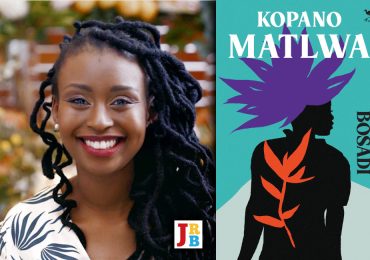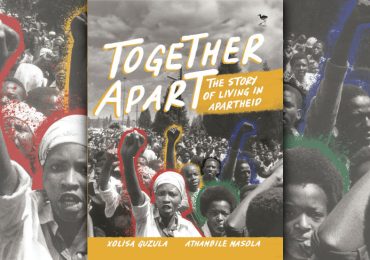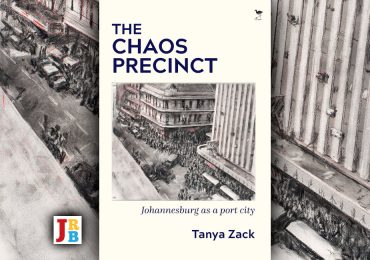Stephen Clingman chats to The Reading List about his memoir, Birthmark, published by Jacana Media.
The Reading List: Thank you very much for the interview, Stephen.
Stephen Clingman: It’s my pleasure; thanks for your interest.
The Reading List: As a South African memoir, your work has been compared to the autobiographical novels of JM Coetzee—Boyhood and Youth—as well as Jacob Dlamini’s Native Nostalgia. Do you enjoy the genre, and did you read widely within it before beginning to write your own?
Stephen Clingman: I had read Coetzee’s memoirs and Jacob Dlamini’s as well, and further back in time there were other books that had affected me, such as Nadezhda Mandelstam’s Hope Against Hope. I wouldn’t say I have a special affinity for autobiographies or memoirs as such, but what does interest me are works that explore the dividing line—which is also a connecting line—between fiction and non-fiction. A work of memory, which is what Birthmark is, inevitably connects the fictive and non-fictive, and those that do so consciously seem to me most interesting of all.
The Reading List: Before Birthmark, you published a book on Nadine Gordimer, and a biography of Bram Fischer, which won the Alan Paton Award. The research behind these books is clear, but did you find you had to do research on your own life and times for your memoir?
Stephen Clingman: One of the pleasures of writing Birthmark is that it involved virtually no research at all. This was the story of what I remembered, as I remembered it. There were one or two moments where I needed to check on things, especially where others were involved, or in one case to avoid the possibility of libel, but generally very little of that was required. And of course there were no footnotes—a great relief after the rigours of academic work.
The Reading List: With a novel, readers often assume both that the story is made up and that at least some of it is autobiographical—such is the nature of fiction. With autobiography, readers assume the story is the truth, when in fact the writer is still controlling what goes into the narrative and what is left out. Was this something you were thinking about when you were writing the book?
Stephen Clingman: Yes, this was something I was very much conscious of. There is the question, which I’ve mentioned already, of how the fictive and non-fictive coalesce in the work of memory. But beyond that is the question you allude to, of how far one controls what is admitted to memory, at least publicly. That involves an implicit question of censorship: am I expurgating what I am prepared to say? I think any honest memoirist would have to search himself or herself quite carefully on that score. But beyond that is yet an even more taxing question: how far is my memory censoring itself, without my knowledge, as it were? Here one reaches the boundaries of conscious awareness, and realises the intrinsic limits of the self knowing itself. A good book will explore this too; I hope Birthmark does.
The Reading List: Did you find the grammatical structure of the book—past and present tense, third person and first person—tricky to manage? Why did you decide to write the book in this way?
Stephen Clingman: It was tricky in parts, where the transitions were hard to manage. But in other respects it flowed quite easily, and the logic, to me at least, was clear. When the self remembers the self—say a much younger version of the self—the result is something that is both subject and object. I was that person over there, and so the third-person narrative seems quite natural. But I am still the one remembering, and there is still some continuity with the person I once was: hence the first-person text. Some memories come with an intense immediacy: thus, the present tense, as I relive the moment. Some are more distant in time and experience, and so the past is more fitting. These flows of memory have their philosophical components—exactly what the relations are between subject and object, past and present, in the continuous, and yet in some ways discontinuous, self.
The Reading List: Your descriptions of military service were described by Ivan Vladislavić as ‘dark comedy’. Was it important to you to include humour in your work?
Stephen Clingman: Humour is very important to me. Otherwise, especially in a work of memoir, one takes oneself too seriously. Humour is a sign of perspective; and it is also a principle of human resilience. As for the army, to me it was intrinsically absurd, so the dark comedy was the only way to describe it.
The Reading List: The book includes some intimate observations of Johannesburg. Have you found you view the city differently since you moved to the United States? Is it easier to observe from a distance?
Stephen Clingman: Distance may lend objectivity, but after many years away there is the sense that Johannesburg is both a place that I know and don’t know. There is a kind of personal archaeology for me here: layers of the city that are familiar that come from an earlier time, and more recent layers that I would have to spend real time excavating to discover. It is a kind of reverse archaeology, if you like: the past is more present to me than the present is. But I think it is also appropriate to come at this with a genuine sense of humility. People here on the ground know so much more than I do; their lived experience is something I can only touch on tangentially. Primarily, the book was exploring a Johannesburg of the past and of memory. As for the present, along with the challenges and sheer intensity of Johannesburg, I have to say that I really admire the energy and intrinsic creativity of the city.






This book of creative non-fiction was a delight: profound and captivating, with elegant prose unearthing layers of the psyche. Thank you for the interview.